Reintroduction of beavers to wetlands having positive impact on bats, research suggests

The reintroduction of beavers to wetlands in England and Wales is leading to an increase in bat activity, a new study suggests.
Researchers from UWE Bristol found that bat movements in beaver enclosures were significantly higher than in comparable wetland sites where no beavers are present.
For one species of bat, Barbastella barbastellus, activity was recorded as 393 per cent higher in the beaver enclosures than in other wetland sites unimpacted by beavers.
The academics say their study is the first to demonstrate that beavers in the UK have a positive impact on bats, which depend on freshwater ecosystems such as wetlands for drinking water and use them as a foraging resource.
Their research, published in Science of the Total Environment journal, found significantly higher activity in habitats modified by the reintroduction of the European beaver for several bat species. The researchers also observed positive effects on bats – which have endangered or threatened status for many species in the UK – in woodland habitats surrounding the beaver enclosures.
Dr Paul Lintott, principal investigator for the study and head of UWE Bristol’s Ecology and Conservation Research Lab, said: “The full importance of beavers to our landscapes has only recently begun to be understood. It is well established that beavers can be used to reduce flooding risk. However, we are now seeing that beavers can help other wildlife thrive, including protected species such as bats. As beaver-modified rivers become more widespread across the UK, it is exciting to know that they will be creating valuable habitats for many other native and endangered wildlife species.”
When introduced, beavers can change the shape of the land, the flow of water, and the types of plants and animals that live in a wetland habitat. Through dam-building, they create ponds that slow down the flow of water and trap sediment and nutrients, helping to prevent flooding and store water for dry periods.
For the study, in 2022, the team of academics compared activity levels at eight bat species/groups in 12 fenced-off beaver reintroduction enclosures across England and Wales and at paired ‘control’ locations with no beavers.
Passive acoustic monitoring was conducted between June and September – the period of peak activity for UK bat species. Each monitoring period lasted for seven nights, with bat activity recorded for 30 minutes before sunset to 30 minutes after sunrise. Altogether, a total of 144,548 ‘bat passes’ belonging to eight species/species groups were recorded during the 83 nights of monitoring.
For six species of bat, there were higher levels of activity recorded in the beaver wetland enclosures, ranging from 21 per higher to 393 per cent higher.
By far the most common species of bat encountered during the study were Pipistrellus pygmaeus and Pipistrellus pipistrellus (combined, these species accounted for eight in every 10 bat movements captured). Pipistrellus pygmaeus activity was an average of 54 per cent higher in beaver-modified wetland habitats while Pipistrellus pipistrellus activity was an average of 40 per cent higher.

The study’s lead author Jack Hooker said: “The importance of freshwater ecosystems for bats cannot be understated. The management of wetland networks is critical for the conservation of bat populations. Previously, human interventions have been attempted to restore these ecosystems but beavers are proving to be a more successful nature-based solution.
“In Great Britain, the European beaver was wiped from the landscape over 400 years ago and as a result, our memory of what beaver ecosystems were like and how other species co-existed with beavers has been lost. The reintroductions over the past decade are highlighting how significantly beavers modify their local environment and how these alterations can improve habitat quality and foraging opportunities for bats, including some of our rarest species.
“Our study demonstrates that restoring wetland networks with beavers can provide a natural solution to restoring degraded and fragmented landscapes which can re-establish historical links between aquatic and terrestrial food webs.”
The full academic paper for the study, undertaken by researchers from UWE Bristol alongside conservation experts from the University of Bath, has been published in the journal Science of the Total Environment.
Related news

15 December 2025
UWE Bristol rises eleven places in People & Planet University League
UWE Bristol has risen to 14th in the People & Planet University League (UK), a jump of eleven places.

12 December 2025
UWE Bristol’s environmentally conscious and student-focused accommodation wins three awards
Purdown View, the world's largest certified Passivhaus student accommodation development, has been recognised at Property Week Student Accommodation Awards.

20 November 2025
UWE Bristol ranked among top 12 per cent of universities globally for sustainability
UWE Bristol has climbed over 400 places in the QS World University Sustainability Rankings 2026, which evaluates universities on a range of environmental and social impacts.

06 November 2025
UWE Bristol welcomes West of England Mayor for annual Green Week
Helen Godwin, Mayor of the West of England, visited UWE Bristol during its annual Green Week to see the sustainability-driven research, innovation and skills initiatives that are helping to power the growth of the region’s green economy.

16 October 2025
UWE Bristol signs Repair and Reuse Declaration in commitment to sustainable initiatives
UWE Bristol is the first UK university to sign the Repair and Reuse Declaration as a whole institution, a call to legislators and decision makers to tackle climate change through greater repair and reuse support.

15 October 2025
UK food needs radical transformation on scale not seen since Second World War, new report finds
A new report from the Agri-Food for Net Zero Network+ finds urgent action on food is needed if the UK is to reboot its flagging economy, save the NHS billions, ensure national food security, and meet climate commitments.
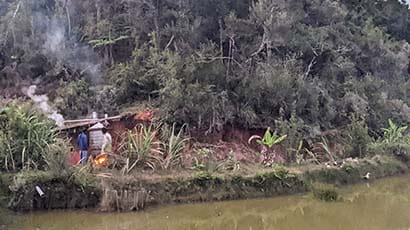
24 September 2025
UWE Bristol to help protect threatened forest in Madagascar in £800k project
UWE Bristol is a partner in a groundbreaking project awarded almost £800,000 in funding to protect one of Madagascar’s most precious and threatened forests.

24 February 2025
WESTbusStop+ makes sustainable travel more convenient
A new WESTbusStop+ bringing together buses and other ways to travel has been officially opened at UWE Bristol’s Frenchay campus.

03 January 2025
Big leap forward for environmentally friendly ‘e-textiles’ technology
Research led by UWE Bristol and the University of Southampton has shown wearable electronic textiles (e-textiles) can be both sustainable and biodegradable.

28 November 2024
Work of UWE Bristol academics features in Government report on air quality measurement
Two UWE Bristol academics have made contributions to an influential Government report on the measurement of air pollution.
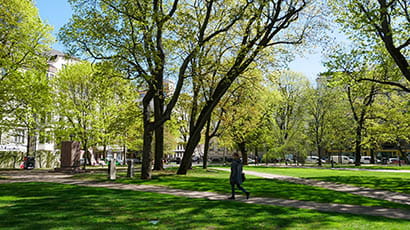
27 November 2024
Traffic noise reduces the stress-relieving benefits of listening to nature, study finds
Road traffic noise reduces the wellbeing benefits associated with spending time listening to nature, researchers have discovered.
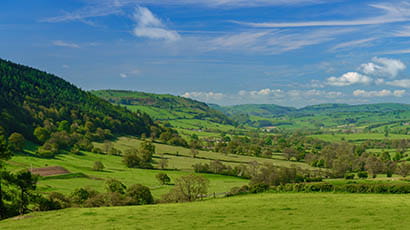
15 November 2024
Grasslands project led by UWE Bristol academic to support UK’s bid for net zero emissions
A UWE Bristol researcher will lead a £4.7 million project focused on the management of UK’s grasslands aimed at supporting efforts to achieve net zero emissions by 2050.
You may also be interested in

Media enquiries
Enquiries related to news releases and press and contacts for the media team.
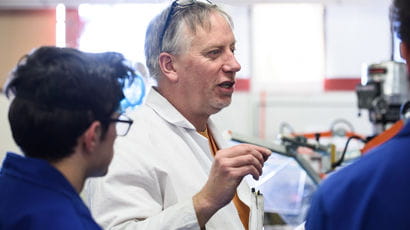
Find an expert
Media contacts are invited to check out the vast range of subjects where UWE Bristol can offer up expert commentary.
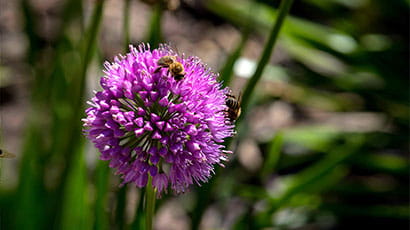
Sustainability at UWE Bristol
Sustainability is embedded in our culture, research and teaching. We have already invested heavily in campus improvements and new technology, with plans underway to be carbon neutral by 2030.

We're creating tomorrow, today. RISE
Collaborating with industry, public sector bodies and communities, we’re redefining horizons and challenging conventions to impact lives positively.






